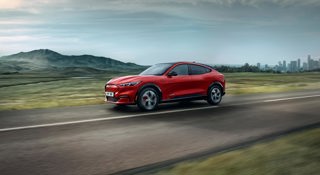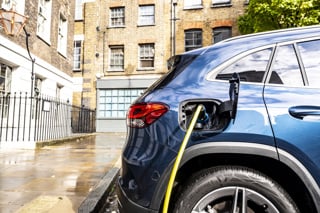Cox Automotive believes more needs to be done to encourage people to buy new and used electric vehicles (EVs), if the country is to achieve its goal of phasing out the sale of petrol and diesel new cars and vans by 2030.
Despite strong sales of EVs reported by the Society of Motor Manufacturers and Traders (SMMT) recently, Cox Automotive warns this is against the backdrop of a new car market that stood at just 186,000 units sold, down almost 16% from seasonal norms.
Philip Nothard (pictured), insight and strategy director at Cox Automotive, said: "While the EV segment is undoubtedly growing fast, this is against an overall reduction in new vehicle sales. Some major barriers still stand in the way of mass EV purchasing, including range anxieties and concerns around the high cost of new EVs. Many motorists still need more convincing to go electric, along with better financial incentives and information, if we are going to be ready for the switch to electric new vehicles by 2030."
A recent consumer survey by Regit, in partnership with Cox Automotive, found that more than half (56%) of drivers would consider an EV for their next vehicle purchase. However, the survey also revealed that 92% raised concerns about the current charging infrastructure and the cost of new EVs (72%).
Similar challenges also exist in the used vehicle market. The survey revealed that 45% of drivers would consider buying a used electric vehicle. New EVs are more attractive to consumers than nearly new models due to the incentives available.
Chris Green, Regit’s chief commercial officer and founder, said: "UK motorists are becoming increasingly aware of EVs and their benefits. The fact more are considering them as their next car purchase shows a shift in attitude and awareness. However, there is more work to be done to convert consumers from considerers to purchasers, whether it be from the manufacturer, motor traders or the UK government."
Data from Auto Trader shows that there is an increased demand for EVs across both new and used vehicles, although these only make up 12% of new car ad views and 1.6% of used car ad views.
 Nothard added: "Following cuts to the Plug-in Car Grant and Van & Truck Grant (PiCG), combined with the higher upfront cost of EVs and lack of new vehicle supply, motorists are likely to stick with cars that are powered by internal combustion engines because they are cheaper and easier to run.
Nothard added: "Following cuts to the Plug-in Car Grant and Van & Truck Grant (PiCG), combined with the higher upfront cost of EVs and lack of new vehicle supply, motorists are likely to stick with cars that are powered by internal combustion engines because they are cheaper and easier to run.
"Regit found that a little over half of consumers believe they do not have sufficient information to make the switch to an electric vehicle, while two-thirds are unaware of any incentives to switch to EV.”
Recent figures of EV sales published by the SMMT show Battery (BEV) and plug-in hybrid electric vehicles (PHEVs) achieved a 21.7% market share in June 2021, overtaking diesel vehicles at 18%.
The overall number of electric vehicles on UK roads is still low when compared to the entire national car parc, however. AutoFocus suggests that by 2025, EVs will make up 9% of the car parc and alternatively fueled vehicles (including EV) will make up 18% of all vehicles on the road. At present, EVs still represent only 1% of the UK car parc and AFVs represent 3%.
> Interested in comparing electric vehicle data? Check out our EV tool.






















Login to comment
Comments
No comments have been made yet.